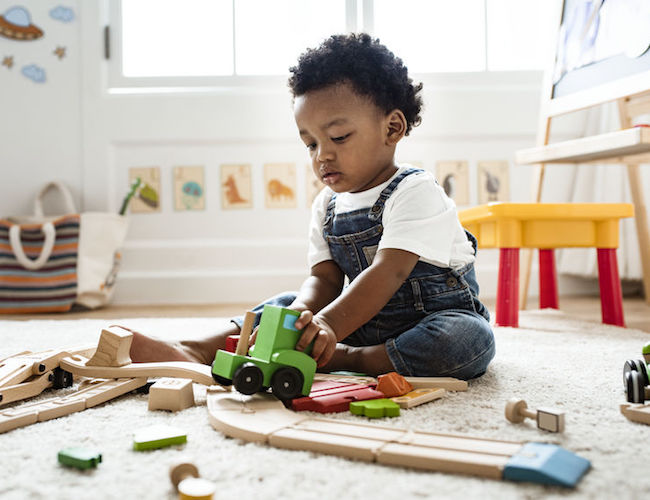Ways to encourage your toddler to tidy up after themselves
It’s a common lament from parents with young children – gone are their tidy homes and ordered existences. Instead, there is a sea of toys everywhere – just ask anyone who’s had the misfortune of stepping on a piece of Lego.
The good news is that it is entirely possible to teach your toddler how to start cleaning up after themself and make a start on creating a little human who values organisation as much as you do.
Parenting coach Laura Markovitz suggests three ways to encourage tidying up after play.
Three ways to encourage your toddler to tidy up after themselves
• Start by keeping an ordered environment for your child, where everything has its own place. For example, if the child knows that the fluffy toys live on the bed and the blocks go on the shelf, they will know where to put things after playing and have a sense of order around them. “However, this is not about being regimented,” she cautions.
• Make tidying into a game. Clean up together as a team so that children see tidying up as part of the fun and get to know where everything belongs in the home.
• Be careful not to overwhelm children with cleaning up. For example, instead of saying “we have to clean up this whole mess quickly”, help break it down. For example, first let’s put all the cars back in this box and once that is done, we can put the dolls on the shelf.
Clinical social worker Andrea Sacks points out that young children have short attention spans, so it is important to take breaks and to encourage and validate the effort the child is making. She adds that children see through empty praise, so make sure it is genuine and authentic.
Setting a good example for tidy habits
“Parents must be consistent and look to offer rewards that are practical and manageable. Above all, acknowledge that all children are different – they learn and respond in a variety of ways. Also take into account the child’s developmental stage and use clear and appropriate language that they will respond to and understand,” she says.
Sacks adds that modelling behaviour is a crucial part of parenting. “Your children will pick up on your attitude when you do your own chores and are likely to act in the same manner.”
“Mess does not need to be seen as negative,” she continues, saying that it can represent a creative and imaginative mind. How children play gives us insight into their personalities.
IMAGE CREDIT: 123rf.com



